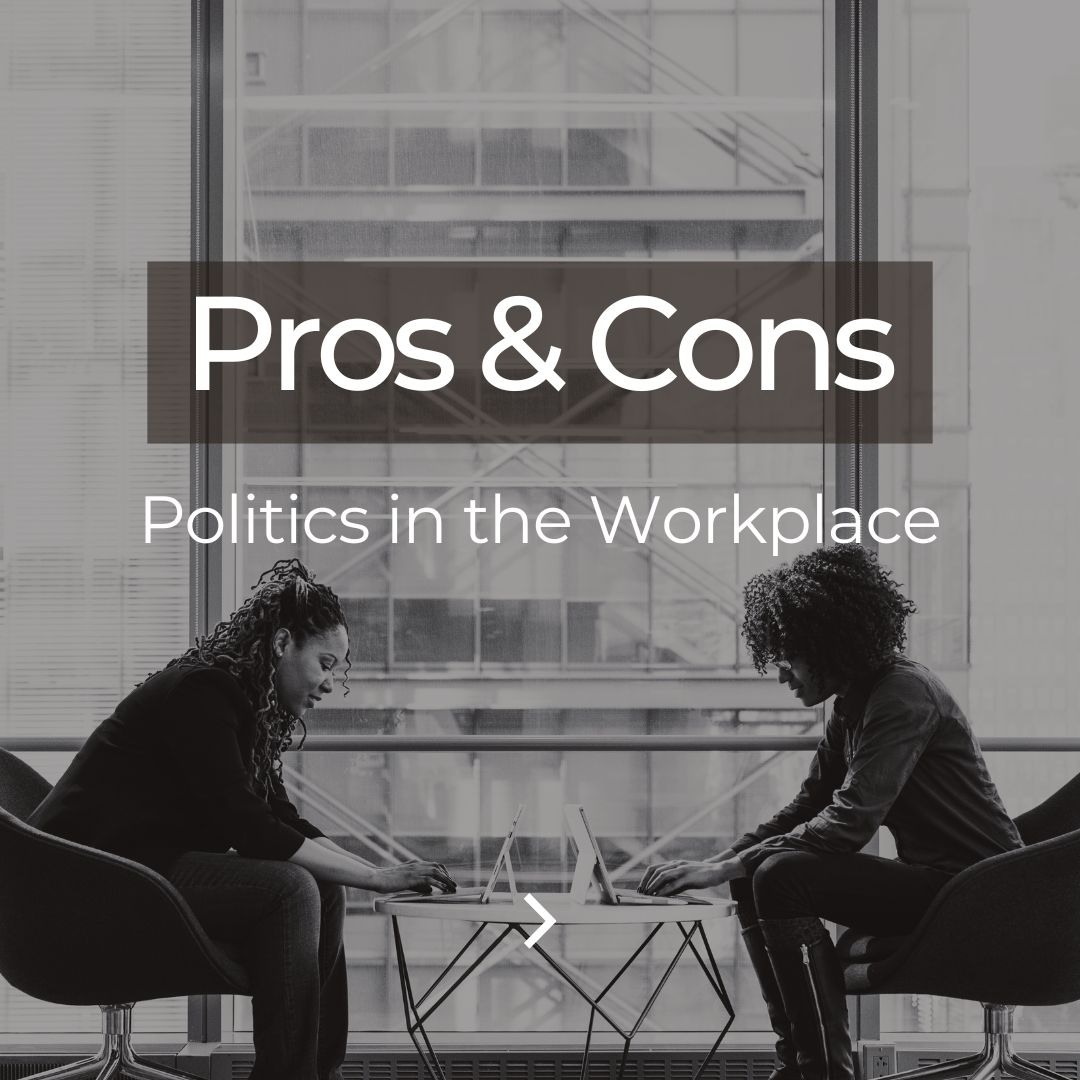A Letter to Leaders: The Pros and Cons of Involving Politics in Your Workplace

When it comes to the upcoming presidential election or politics in general passions are running especially high and people are dug in. That’s fine outside of the workplace but things must be different within it. Here’s why…
There is a certain ubiquity to our politics today. From the race for the White House to those for local school committees the stakes are very high for everyone and therefore for all your employees. While some enjoy discussing politics with their colleagues, others may find it uncomfortable or disruptive. Consider these pros and cons of involving political discussion in your workplace:
Pros:
- Engendering Collegiality – Sharing one’s thoughts and opinions on anything political opens the door to learning more about your team’s perspectives and values. This can help to build stronger relationships and rapport, which can make the workplace more enjoyable and productive.
- Fostering Community & Belonging – When you talk about politics with your colleagues, you can feel a sense of community and belonging. This can be especially important for employees who are new to your company or others who may feel isolated.
- An Opportunity to Educate & Inform – If you are knowledgeable about the issues, you can help educate and inform your team who may not be as familiar with the issues. This can help to create a more informed and engaged workforce.
Cons:
- Concerns of Disruption & Distraction – Too much time talking about politics can be disruptive and distracting to your team’s core work responsibilities. Overdoing it can lead to decreased productivity and missed deadlines.
- Possible Conflict & Tension – If leaders have strong feelings about politics, they may find it difficult to have low-temperature, civil discussions with members of their team with different views. This can create conflict, tension, and possible imbalances of power in your company.
- Unprofessional – Talking about the election in the workplace can be seen as unprofessional. This is especially true if you are in a position of authority.
U.S. News and World Report recently published a piece entitled, Can You Be Fired for Talking Politics at Work? Within it, they offer these guidelines:
“When Can’t You Be Fired for Talking Politics at Work?
- Exceptions exist where an employer cannot fire you for discussing politics at work. They are:
- Your political talk bleeds into protected concerted activity talk.
- Your employer’s actions have an impact on a certain protected class of people.
- There’s a state or local ordinance that says otherwise.
- Your employer is a public entity, such as a city, county, or school district.”
Consider Your Company’s Wider Community
Beyond the physical and proverbial four walls of your company is your community of partners and customers. What will they think of knowing your political views? Have you calculated the economic impact of these views being known? It may benefit your company to be openly political but could just as easily be detrimental.
Many leaders work at the pleasure of investors and company boards. Being clued into how these and your wider community will respond to a company that takes a side or chooses to be apolitical is important for everyone involved.
Ultimately, the decision of whether or not to discuss politics in the workplace is a personal one. If you think that it will be beneficial to your relationships with your team and the overall work environment, then go ahead and have a conversation. However, if you think that it will be disruptive or distracting, then it is best to avoid the topic altogether.
How Politics in the Workplace Ties to PR
As leaders, it’s crucial to understand how these internal dynamics can affect your external reputation. When handled thoughtfully, political discussions can highlight your company’s commitment to transparency, diversity of thought, and employee engagement. However, mishandling these conversations can lead to public backlash, strained client relationships, and a tarnished brand image. It is important to consider how incorporating politics into workplace discussions can have implications for your company’s public relations strategy.
Aligning with Company Values and PR Goals
To navigate this complex terrain, align your approach to political discussions with your company’s core values and PR objectives. Here are a few strategies to consider:
- Establish Clear Guidelines: Develop and communicate clear policies about political discussions at work. These guidelines should balance respect for personal expression with the need to maintain a professional and inclusive environment.
- Promote Respectful Dialogue: Encourage respectful and civil discourse. Media training on effective communication can help employees discuss sensitive topics without conflict.
- Leverage Leadership: Leaders should model the behavior they wish to see. By engaging in balanced and respectful political conversations, leaders can set a positive tone for the entire organization.
- Monitor and Adapt: Continuously measure the impact of political discussions on your workplace culture and external reputation. Be prepared to adapt your policies and practices as needed to ensure they remain effective and relevant. Having a crisis communications plan in place will help you to pivot swiftly if an incident occurs.
Conclusion
Deciding whether to engage in political discussions at work is not a one-size-fits-all decision. It requires careful consideration of your company’s culture, values, and the potential impact on both internal dynamics and external perceptions. By thoughtfully navigating these discussions, you can foster a more informed, engaged, and respectful workplace while protecting and enhancing your company’s public image.
Remember, the way you handle politics in the workplace can either be a catalyst for positive change or a source of division. Choose wisely, and always keep your company’s broader PR strategy in mind.
